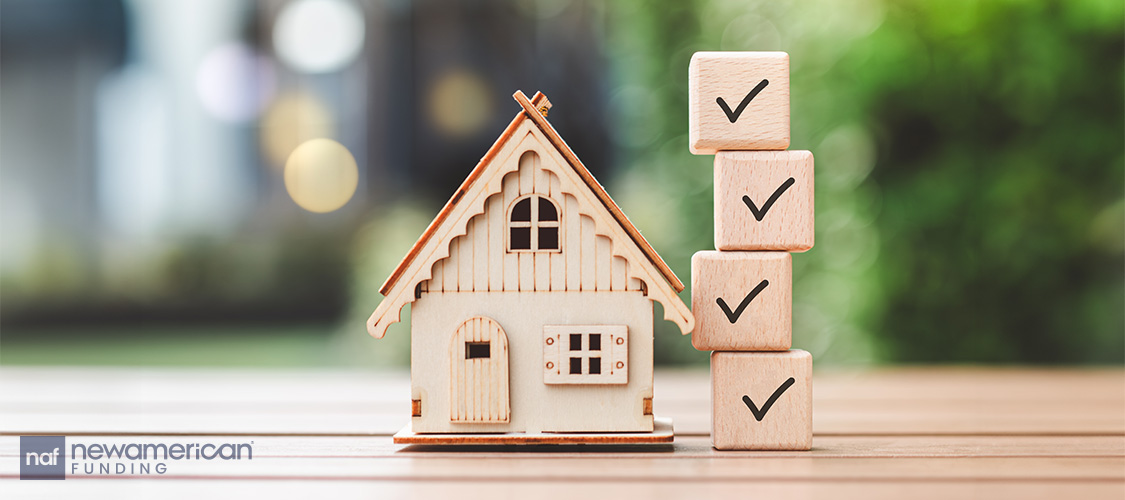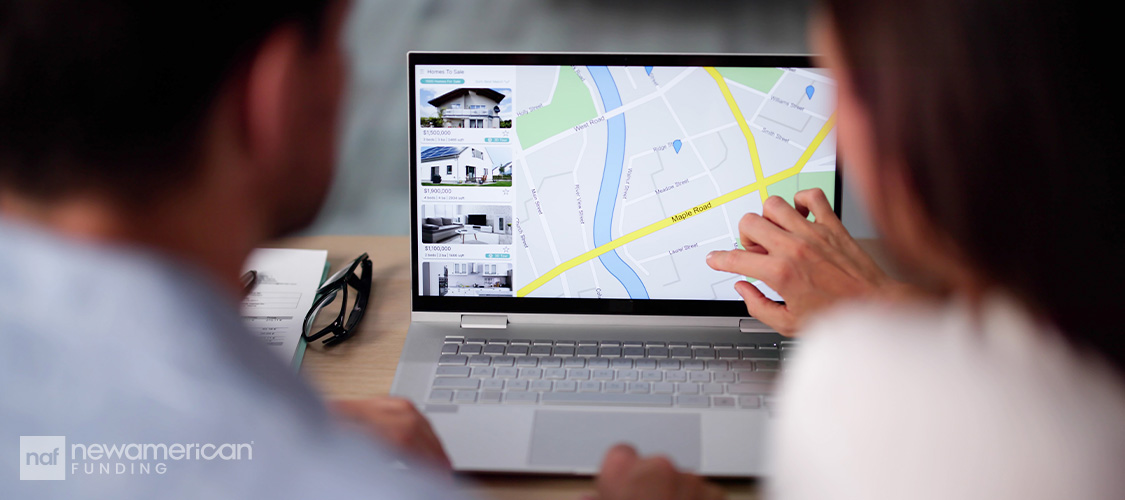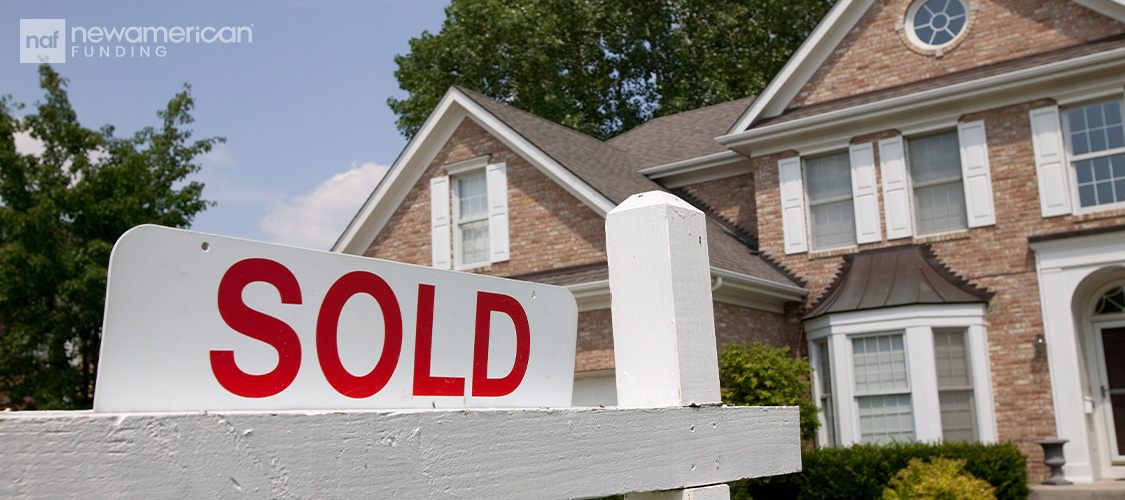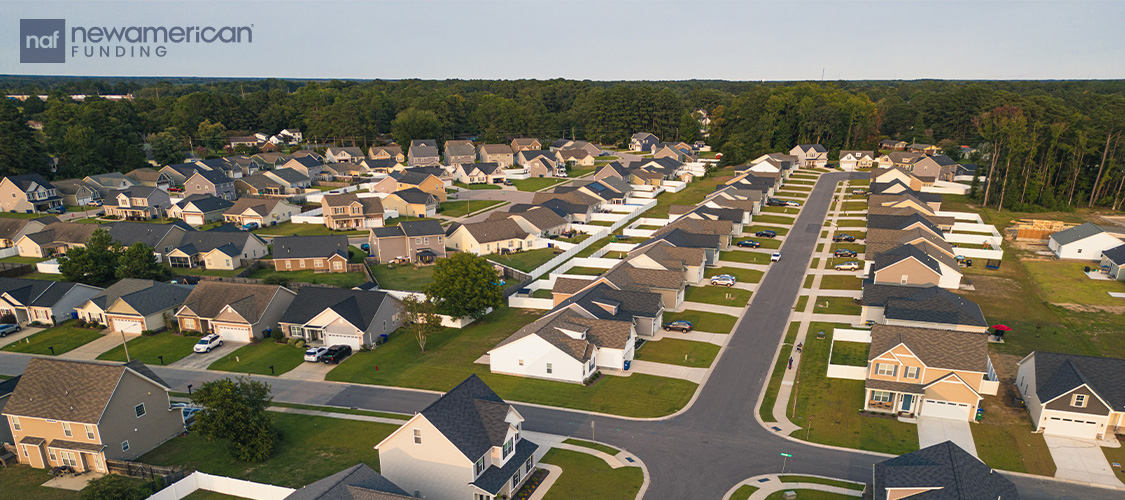Guides
North Carolina First-Time Homebuyer Guide 2025
October 6, 2023
(Content originally published in 2024, updated for 2025)
From the Blue Ridge Mountains to the Outer Banks coastline, North Carolina offers a mix of urban, suburban, and rural living options that appeal to a variety of lifestyles.
For those ready to purchase their first home, North Carolina also offers programs to make the process more manageable.
There are many home loans and down payment assistance programs available to first-time homebuyers who hope to purchase a home in the state.
There are many educational resources available for first-time homebuyers. They are offered by a variety of organizations, including government agencies like the U.S. Department of Housing and Urban Development (HUD), mortgage lenders, and non-profit organizations.
The benefits of being a first-time homebuyer

Most assume that first-time buyers are just as they sound, people who have never previously owned homes.
However, a first-time homebuyer includes anyone who has not owned a principal residence in the last three years, according to HUD. Other circumstances may allow home shoppers to qualify as well.
There are benefits to being considered a first-time homebuyer. They include:
Down payment and closing costs assistance: There are many down payment assistance (DPA) programs available to first-time and other homebuyers. The money these programs provide can be used to help with your down payment, closing costs, and potentially other expenses.
They can include state and local government programs, as well as programs offered by non-profit organizations, employers, and lenders.
New American Funding offers The Pathway to Homeownership, which provides eligible borrowers up to $6,000* in financial assistance. It can also be combined with other DPA programs.
Low or no down payments: There are several loans that may be available to first-time homebuyers that offer low or no down payments. These include Federal Housing Administration (FHA) loans, where buyers may be able to put down as little as 3.5%, and U.S. Department of Veterans Affairs (VA,) and U.S. Department of Agriculture (USDA) loans. Typically, VA and USDA loans do not require down payments.
However, buyers who do not put down at least 20% may be required to pay private mortgage insurance (PMI) until they build a set amount of equity in the home or meet other requirements. (VA loans do not require PMI.)
Each loan comes with its own set of unique qualifications in addition to the requirements of the lender offering them.
Qualifications for first-time homebuyers in North Carolina
North Carolina uses HUD's definition of a first-time homebuyer.
The agency has more eligibility guidelines in addition to the three-year qualification, so make sure to check with your lender to see if you will be considered a first-time buyer.
Housing market data that first-time homebuyers in North Carolina need to know

Median home sale price in North Carolina: The median sale price for a single-family home in North Carolina was $355,000 in the first three quarters of 2024, according to real estate data provider ATTOM.
Minimum down payment in North Carolina: The minimum down payment a borrower may put down on a home in North Carolina depends on the type of loan. The down payment can be as low as 0% (USDA and VA loans), 3% (Conventional loans), or 3.5% (FHA loans).
The exact amount will depend on your credit score, debt, income, and the loan you choose.
Median down payment in North Carolina: The median down payment in North Carolina was $30,619 in the first, second, and third quarters of 2024, according to ATTOM. This was only for single-family homes.
Down payment assistance programs for first-time homebuyers in North Carolina
The North Carolina Housing Finance Agency (NCHFA) offers two options to access down payment assistance when buying your first home.
- NC Home Advantage Mortgage: The NC Home Advantage Mortgage is a first-time loan option that offers competitive fixed-rates on government-backed mortgage loans. If you qualify for the loan, you may also be able to go on to apply for up to 3% in down payment assistance. This assistance is issued as a second mortgage that is not due until you sell your home, refinance your loan, or transfer your home in the first 15 years. Down payment assistance is forgiven at 20% per year at the end of years 11-15, with complete forgiveness at the end of year 15.
- 1st Home Advantage Down Payment: The 1st Home Advantage Down payment program offers eligible first-time homebuyers and military veterans up to $15,000 in additional down payment assistance issued as 0% forgivable second mortgage. To qualify, you must be buying your first home, be a military veteran, or purchasing a home in a targeted area of the state. You must also be using an NC Home Advantage Mortgage and have a credit score of at least 640 points.
In addition to the down payment and closing cost assistance available through the North Carolina Housing Finance Agency, the town or borough that you're moving to may also have financial help you can access.
For example, if you're soon to become a resident of Greensboro and you demonstrate financial need, you could qualify for up to $15,000 in help with your down payment and closing costs through the city’s Homebuyer Assistance Program. Explore your new hometown online to learn more about specific programs you may qualify for.
How to apply for first-time homebuyer loan programs in North Carolina

The mortgage application process will vary depending on which loan you choose. However, the basics will remain the same.
These are the 12 steps that first-time homebuyers should take when purchasing a property.
Step 1: Assess your finances
Your budget: Figuring out how much home you can afford is the first step on your homebuying journey. It’s important to understand your finances before you begin attending open houses.
Using a mortgage calculator and factoring in first-time homebuyer expenses like the size of your down payment, current mortgage rates, and home insurance and property tax costs, can help you determine your budget.
You will also want to consider your needs, such as the size, location, and amenities that you want in a home.
Credit: Your credit score will play a large part in determining which loans you can qualify for, as well as the terms and conditions of those loans.
When you go to apply for a loan, you'll want to check your credit score first, so you have a good idea of what to expect.
The higher your score, the more you may be able to save. For example, those with loftier credit scores may be able to lock in lower mortgage rates.
Different loans require different minimum credit scores. For instance, Conventional Loans require a minimum of 620, while an FHA loan can go as low as 500 with a certain down payment amount.
Lenders don't just look at your credit score. They also view your repayment history. They consider how many lines of credit (which include credit cards) you have open, how consistently you make payments, as well as how much credit card debt you have overall.
If your credit score is low, consider taking steps to raise it before applying for a home loan. New American Funding has partnered with Uqual, a loan readiness company, to allow borrowers to increase their ability to qualify for a loan.
Debt-to-income ratio (DTI): Lenders look closely at applicants’ DTI when determining whether to extend a loan or how much to approve. Your DTI is your monthly income compared to how much you owe in debt each month.
The highest your DTI should be, before factoring in a mortgage loan, is 28%. When you include your mortgage payment, your DTI should not exceed 50%.
Down payment: How much you will need for a down payment depends on the type of mortgage you choose as well as your credit score.
Sellers and lenders often look more favorably on buyers with larger down payments. These buyers may have an advantage in a bidding war. Lenders may reward them with lower mortgage rates.
However, buyers may not need to put any money down.
Loans with lower or no down payment required are typically popular among first-time homebuyers.
Here are the down payment minimum requirements for other types of home loans:
- Conventional loans: 3% - 20%
- FHA loan: 3.5%
- VA loans: 0%
- USDA loans: 0%
Step 2: Learn how much you may be eligible to borrow
Request a quote from your lender to learn how much you may be approved to borrow.
Step 3: Get pre-approved for a mortgage

Getting pre-approved for a mortgage is a must before you start looking for a home. Having your pre-approval letter is almost a requirement for a real estate agent to show you homes or have sellers accept any offers you may make.
A pre-approval is different from the step above because it often means speaking to a lender.
Your loan officer will look over your credit and verify your income and assets according to your W-2 forms, tax returns, bank statements, and paychecks.
A pre-approval letter will likely include the maximum amount a lender will offer you. This does not mean that you have to spend the full amount. It is best to consider your options and not take on more than you are comfortable paying back each month.
Pre-approvals can give you an idea of what types of homes may be in your budget before you start shopping.
Step 4: Find a real estate agent
Finding a savvy real estate agent is a key part of the homebuying process. Take your time and choose an agent that you trust.
NAF Homes**, an affiliate of NAF, can connect you with local real estate agents and agencies in your area.
Step 5: Shop for your dream home
Enjoy shopping for the home of your dreams. Check listings online, visit open houses, and drive through neighborhoods you're interested in to see if properties catch your eye.
Make sure to visit multiple homes so you get a sense of what you want, what you need, and what you can afford.
Step 6: Be prepared to make an offer

When preparing to make an offer on a home, you'll need to keep several factors in mind.
Consider your budget and the current conditions of the market, as well as the costs of any needed repairs.
In a competitive market, you may need to offer more than the list price. However, in a slower market or for a property that hasn’t attracted much interest from other buyers, you may be able to offer less than the asking price.
Your real estate agent should provide you with “comps,” which are what similar homes in the area recently sold for to help you figure out what to offer.
If there is a bidding war, you might need to sweeten your original offer to have it accepted by the seller.
Step 7: The home appraisal
After your offer is accepted, the lender will generally coordinate a home appraisal. Lenders typically require this step as the appraiser will figure out how much the home is worth. This ensures you are not overpaying for the property.
If the home is appraised for less than what you offered, you may need to renegotiate with the seller or come up with the additional money.
You may not want to waive your appraisal contingency for this reason unless you have the money to cover any potential difference between the appraiser’s estimate and your offer.
Step 8: Hire a home inspector
It’s important to hire a home inspector once your offer is accepted. Having your home inspected is often a lender requirement for mortgage approval.
An inspection will tell you what state the home is in and inform you of any needed repairs. Home inspectors examine the home in detail, looking for things like potential water damage, rotting wood, and other damage.
You may not want to waive your inspection when putting in an offer. Inspections may save you money and may provide peace of mind that you’re not moving into a home with expensive issues.
If there are problems, they will need to either be repaired before you close on the home, or you and the seller will come to an agreement on who will pay for the work.
Step 9: What type of mortgage should you get?
Once your offer is accepted, it’s important to reach out to your loan officer to figure out which mortgage is right for you.
Fixed-rate or adjustable-rate loans:
First-time homebuyers will need to choose between a traditional fixed-rate mortgage and an adjustable-rate mortgage.
A fixed-rate mortgage is typically a 15- or 30-year loan where the interest rate is locked in when the buyer closes, It stays the same over the life of the loan.
An Adjustable-Rate mortgage (ARM) has an interest rate that is set for the first 5, 7, or 10 years and then adjusts periodically.
Fixed-rate loans offer the stability of predictable monthly loan payments that won't change over time. This can make it easier for borrowers, particularly those buying a home for the first time, to budget and save since there won't be any surprises.
Adjustable-rate loans may offer higher upfront savings initially as they often have lower introductory rates and smaller monthly payments.
However, once the introductory period is over, the interest rate will continue to adjust periodically. This means your payments could move up or down.
Check with your loan officer to see which loan might be right for your unique needs.
Step 10: Negotiate closing costs
Negotiating closing costs is a common practice that can be particularly beneficial to first-time homebuyers. Closing costs are the final fees and costs that homebuyers have to pay before they complete the purchase of their home.
Closing costs are usually between 2%-5% of the home's purchase price. They can include things like the appraisal fee, processing fee, and transfer taxes.
You can negotiate closing costs with your seller, your lender, and your real estate agent.
In a buyer’s market, when there are fewer buyers competing for homes, sellers may be more likely to contribute to your closing costs than in a seller’s market where they are more likely to receive multiple offers.
Step 11: Find homeowners insurance
Homeowners insurance provides financial protection for your home and property in case of certain disasters. These can include natural disasters like flooding or fires, or incidents like burglaries.
Since lenders are financially tied to your home and property, they generally require you to have homeowners insurance before you can close on your home.
Step 12: Close on your home

Congratulations, you closed on your home and picked up the keys.
Make sure to book your movers, change the locks, and set up your utilities.
Welcome home!
Home loans for first-time homebuyers
Conventional loans: Conventional loans are the most common type of home loan. They are not government loans, but most are backed by Fannie Mae and Freddie Mac. Since they are not guaranteed by the government, they may have fewer restrictions than government-backed loans.
The down payment on a Conventional loan can be as low as 3%. The minimum credit score required is 620, and in general, many lenders have a maximum DTI of 43%. Some lenders will accept a higher DTI with certain conditions.
Down payments generally range from 3% to 20% depending on your credit score and income.
FHA loans: FHA loans are home loans that are backed by the Federal Housing Administration. The FHA does not administer the loans itself but works with approved lenders who offer these mortgages.
FHA loans are popular with first-time homebuyers due to their more flexible credit and debt-to-income requirements, and down payment options.
The loans allow a minimum credit score of 500 to 580, depending on the size of your down payment.
The down payment requirement for an FHA loan is 3.5% to 10% depending on your credit score. Your DTI can be as high as 57% under certain circumstances.
USDA loans: USDA loans are mortgages that are backed by the U.S. Department of Agriculture. They do not require a down payment, but you may be able to lower your interest rate by putting more money down.
USDA loans have a minimum credit score of 580 and they allow for closing cost assistance.
USDA loans also have 100% financing for qualified borrowers. They do not require private mortgage insurance, but have similar fees.
There are no occupational requirements to qualify. However, the property must be in an eligible geographic area, often in more rural communities outside of larger cities. You can search the address of the property you are interested in to see if it qualifies.
VA loans: VA loans are mortgages that are backed by the U.S. Department of Veterans Affairs. VA loans are only available to eligible veterans, military servicemembers, and their spouses (under certain circumstances).
The loans were designed to enable military members to achieve their dreams of homeownership and come with many benefits.
VA loans also do not require a down payment, they often offer lower interest rates than other loans, and have no monthly mortgage insurance premiums.
In addition to the federal requirements of each loan, there will be other applicable requirements and qualifications from your lender.
Mortgage rates in North Carolina

A mortgage rate is the interest rate that you pay on your home loan. Rates change throughout the day based on various factors and changes in the housing market and the national and global economy.
The interest rate on your loan will also depend on your financial profile, such as your credit score, income, and DTI.
North Carolina first-time homebuyer FAQs
Is there an income limit for first-time homebuyers in North Carolina?
There is no general income limit for first-time homebuyers in North Carolina. However, various loans and assistance programs have their own income requirements.
Can a person with a low income buy a home in North Carolina?
Yes. North Carolina has resources and home loans available that may be able to help a person with a low income buy a home.
The state does not have a minimum income requirement to purchase a home. If you have an offer on a home accepted and you are approved for a mortgage to cover the costs, you may be able to purchase a home.
Does North Carolina have first-time homebuyer programs?
Yes, North Carolina has several first-time homebuyer programs available. They offer down payment assistance and homebuyer education courses and counseling.
Check with the North Carolina Housing Finance Agency to see details about their homebuyer programs.
How much does a first-time homebuyer have to put down in North Carolina?
How much a first-time homebuyer must put down on a home depends on the loan type and their unique financial profile.
For example, VA loans offer zero down payment, while the down payment on a Conventional loan can be between 3%-20%.
The typical down payment was $30,619 in the first three quarters of 2024, according to real estate data firm ATTOM.
What credit score does a first-time homebuyer need to buy a home in North Carolina?
The credit score needed by a first-time homebuyer in North Carolina will depend on the loan type they are applying for and their financial situation.
For instance, FHA loans may allow a credit score as low as 500 with a high enough down payment. For Conventional loans, a minimum credit score of 620 is generally required.
*Due to maximum seller concession rules, the discount can be less than $6,000 in some cases where other concessions have been made to the consumer.
** NAF Homes, Inc. is an affiliate of New American Funding and does not originate mortgage loans or issue loan commitments. NAF Homes, Inc. is an MI Real Estate Broker #6505431109, Tel. 844-626-1300.
NMLS #6606. www.nmlsconsumeraccess.org. Terms and Conditions Apply. This is not a loan commitment or guarantee of any kind. Loan approval and rate depend on borrower credit, collateral, financial history, and program availability at the time of origination. Rates and terms are subject to change without notice. All mortgage loan products are subject to credit and property approval. © New American Funding, LLC. New American and New American Funding are registered trademarks of New American Funding, LLC. All Rights Reserved. Corp Office 14511 Myford Rd, Ste 100, Tustin, CA 92780. Ph 800-450-2010.





 Smart Moves Start Here.
Smart Moves Start Here.